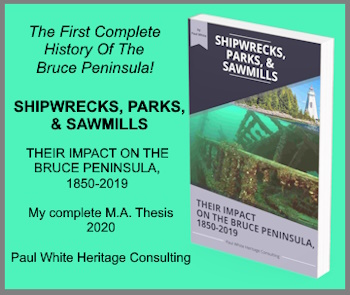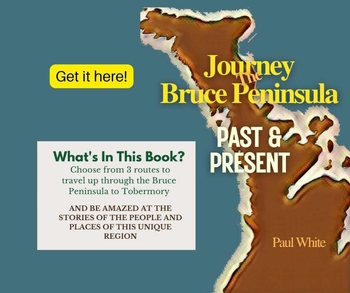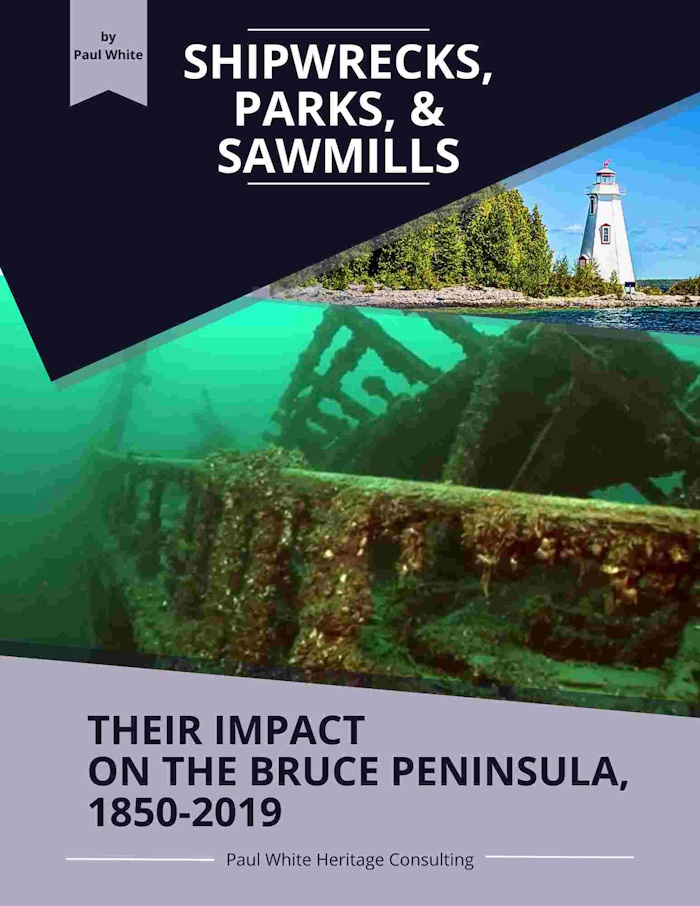Battleship By-Election
The "Battleship By-Election" was the result of a debate that embroiled all of Canada but was settled in a rural region of southwestern Ontario prior to the First World War.
As the tensions mounted in European political circles in 1913, the rest of the world prepared themselves for the possibility of a war.
In Canada, Prime Minister Robert Borden's Conservative government passed a bill which authorized the expenditure of $35,000,000 to build three dreadnought battleships. These vessels were to be given to the British navy. However, the Wilfrid Laurier Liberals had negotiated a concession that, if Canada needed the warships, they would be returned to Canada.
The bill which had passed through the House of Commons was defeated by the Liberal majority in the Senate.
These events set the stage for political maneuvering which would have a direct impact upon this region.
The Conservatives were eager to overturn the Liberal dominance in the Senate.
Using the age-old ploy of Canadian political parties, Borden appointed new Conservative members to the Senate. One of the first to be appointed to the Canadian upper chamber was JJ. Donnelly, the MP for the riding of South Bruce.
Donnelly's departure from the House of Commons necessitated the calling of a by-election to fill the void in South Bruce.
Wellington Cargill of Cargill was chosen to carry the Conservative banner and the Liberals selected Rueben Truax from Walkerton.
The decision whether to build the battleships was the main issue, and perhaps, the only issue that mattered to the Liberals and the Conservatives. Newspapers from the era report little more than cursory references to the candidates. Instead, both parties sent in prominent speakers to stir the political fires for support for their positions.
Many considered that the Borden Conservatives had made a political error by promoting Donnelly to the Senate and opening up South Bruce to a by-election.
That riding had been a Liberal stronghold for many years. The former leader of the Liberals, Edward Blake, had been the member for the riding, and the Liberal forces were still well entrenched in the area.
Donnelly had been the first Conservative to hold that seat in many years, and he had won it by the slimmest of margins – 103 votes.
Therefore, the Liberals felt that they had an advantage and decided to “pull out all the stops” not only to regain a Liberal stronghold, but to enhance their argument with regard to the building of the three dreadnoughts.
To this end, the Liberals brought in several “political heavyweights” to promote their candidate. The Hon. George Graham, and two members of parliament, Fred Pardee and W.M. German, made appearances at political rallies in support of Truax.
Future Prime Minister Mackenzie King also made the trek to fan the Liberal flames at five rallies.
If there was any question in the minds of the voters that the Liberals wanted to win the riding, it was answered on October 28, 1913, two days before the election.
That evening 2,500 South Bruce voters packed the Teeswater Arena to hear none other than Wilfrid Laurier expound about the need to build ships for the British navy, which he opposed.
Laurier had done his homework before he arrived in Teeswater. He knew that one-third of the population of the riding were of German descent, and that those of English origins in the area were fourth in numerical standing behind the Scots and Irish. With this demographic information he proceeded to deliver a carefully worded speech. The Globe reported that Laurier had stated "They said there was a German peril. How could there be a German peril?"
He denied any suggestion that Germany was building a navy to attack England because those two countries had never been traditional enemies. He said that Germany was building a navy only to defend its maritime commercial interests. Laurier re-iterated that Germany was a bitter enemy of France, not England.
Laurier's demographic research and the tone of his speech in Teeswater may have hit the mark.
Two days later, on October 30, the Liberal candidate was elected by the slim majority of 115 votes.
Did Laurier’s jingoistic speech in Teeswater have an impact? No one can be sure.
However, the Liberals made their largest gains in Brant, Carrick, and Greenock townships, areas which were at that time heavily German-Canadian in descent.
The information used in this article, “Battleship By-Election," came from local newspapers, and the Toronto Globe and Mail.
A version of “Battleship By-Election," originally appeared in my Local History column in the May 31, 1997 edition of the Owen Sound Sun Times.
Bruce County History
Bruce County history is rich with stories about the development of communities along the Lake Huron shoreline and shaped by memorable events and the people.
The "Battleship By-Election" was the result of a debate that embroiled all of Canada but was settled in a rural region of southwestern Ontario prior to the First World War.
Bruce Road 3: A Colonization Road linked prospective settlers to undeveloped Crown Lands and a new life.
British Peerage a Source for Township Names. It is interesting to check the origin of the names bestowed on pioneer places such as towns, townships and counties.
Chesley Ontario Welcomes the Krug Brothers who were looking for a place to make their future and their fortune. They were not only successful, but they made significant contributions to the social fabric of their adopted home town.
Billy Crawford: Pioneering Spirit Personified. If you take the time to consider the people you have met during your life you too may know or have known, someone with pioneering spirit just like Billy Crawford.
Frozen Rivers & Lakes can be Hazardous: Icy waterways offer many benefits such as ice fishing, but beware weak, or thin ice is not easily detected and can spell disaster.
Kincardine Ontario's First Settlers using a bit of savvy and some luck created a future for themselves and their families on the Lake Huron shoreline.
The Krug Impact on Chesley Ontario was immense not only in terms of the community's social fabric but with regards to community's economic growth.
Wilfrid Laurier: Despite the town's best efforts to make Wilfrid Laurier's visit a memorable occasion, it would be clouds of dust that would remind the Prime Minister of the Lake Huron community.
Mildmay Ontario overcame competition from other communities to claim its spot in Carrick Township on an important settlement route to the Lake Huron shoreline.
Pioneer Diaries provide Interesting Information about many topics, but sometimes information about the weather can be quite surprising!
The pioneer settlement in Arran Township was completed in 1851. The survey crew had been impressed, by the cheap cost and the potential of the land, that two members of the team, George Gould and Richard Berford, took up plots of land.
Port Elgin Ontario Started with a Storm. A ship forced to seek refuge from Lake Huron's stormy wrath signalled to one man the idea of starting a new community.
Southampton's early history was a time of identity crisis, and with a connection to an early Arctic mystery story.
Southampton Ontario Suffered a Major Fire in 1886: The havoc was created by a furious high wind storm that spread the flames over much of the town.
Tara Ontario's Mill Started the Village Economy and with the entrepreneurial and inventive genius of one man the community prospered!
Walkerton Ontario: The Beginning of this Bruce County town is the result of the drive and determination of one man, Joseph Walker.





